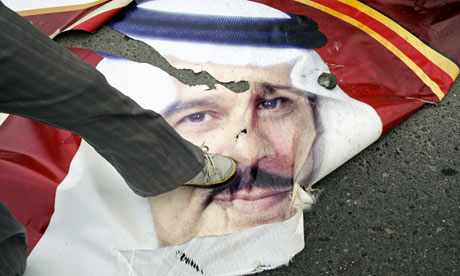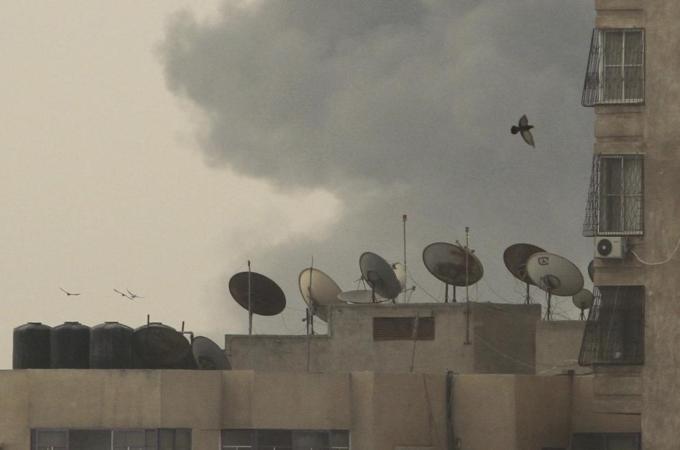By Justin Dorman
Impunity Watch Reporter, Middle East
MANAMA, Bahrain — Four men in their twenties were recently detained and charged for statements they made on Twitter which allegedly insulted King Hamad.

They were all arrested on charges of defaming the king on Wednesday and had their computers and other electronic equipment confiscated. Prosecutor Ahmed Bucheeri has said that the four will face, “an urgent trial before the criminal court.”
So far three of the cases have been adjourned to October 31 for submission of defense papers. The other case has been adjourned for the verdict on November 1. The three adjourned until the 31st have all denied the charges brought against them. Additionally, all three have been denied their respective requests for release. The fourth man charged admitted to committing the act, however, later notified the judge that he was informed he would be released had from custody had he admitted to the crime.
Bahrain has been in political tumult since the Sunni rulers suppressed the Shia majority’s pro-democracy protests last year. They put down the uprising through the use of martial law and help from other Gulf neighbors. The country is in great unrest and it is a daily commonplace occurrence that protestors and police will clash in the streets.
Since the uprisings, criticism of King Hamad or the Al Khalifa family has been considered a great offense. The court interprets any insult towards the ruling family as an insult on the country of Bahrain as a whole.
The Arabic Network for Human Rights Information (“ANHRI”), has called for the “immediate release of all the prisoners of conscience in the Bahraini prisons and respect the freedom of opinion and expression and the peaceful demonstration.”
ANHRI is upset about how these four bloggers have been arrested and in general, condemns the frequent and systematic violence in which Bahraini authorities deal with peaceful demonstrators. They have urged other international and regional human rights organizations to take greater action to change Bahrain’s policies which suppress human rights.
These four twenty year old men have not been the only alleged protestors who have been recently detained. A month ago, Zainab al-Khawaja, the daughter of a detained Bahraini activist, was imprisoned for two months for tearing up a picture of King Hamad.
Last July, protest leader Nabeel Rajab was convicted and sentenced to three months in jail for a comment he tweeted against the prime minister. Rajab was later acquitted on appeal which gives some hope to these four men on trial for similar charges.
For further information, please see:
Gulf Daily News – Four on Trial for Insulting His Majesty – 23 October 2012
The Arabic Network for Human Rights Information – ANHRI Calls the Bahraini Authorities to Stop Suppressing the Peaceful Demonstrations – 23 October 2012
Saudi Gazette – Bahrain Detains Four for Defaming King on Twitter – 19 October 2012
Guardian – Bahrain Charges Four Men with Insulting King – 18 October 2012


